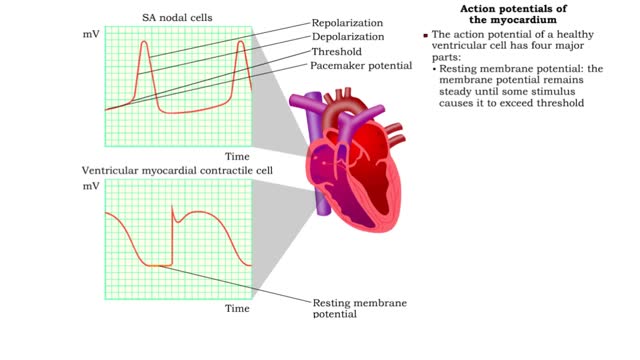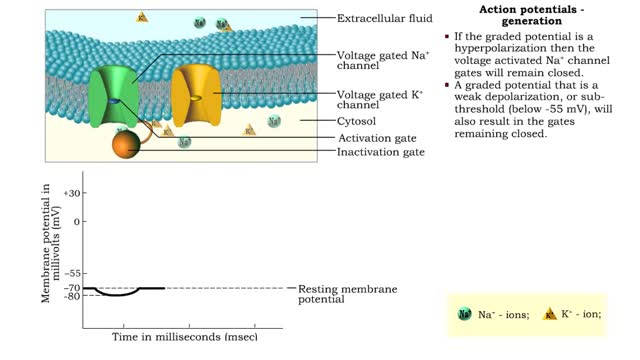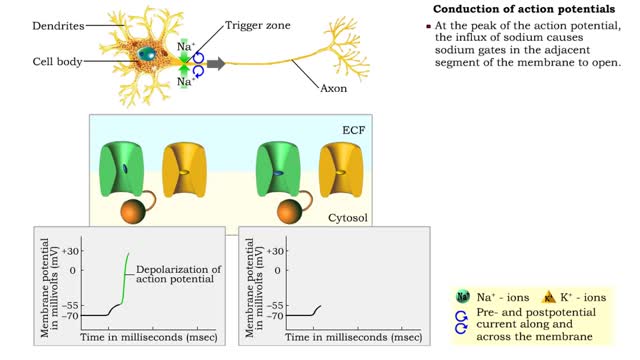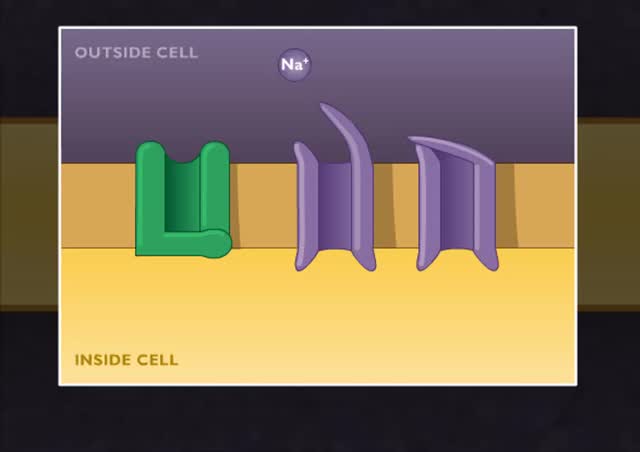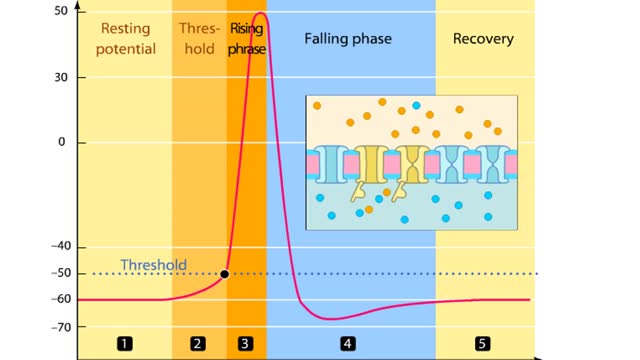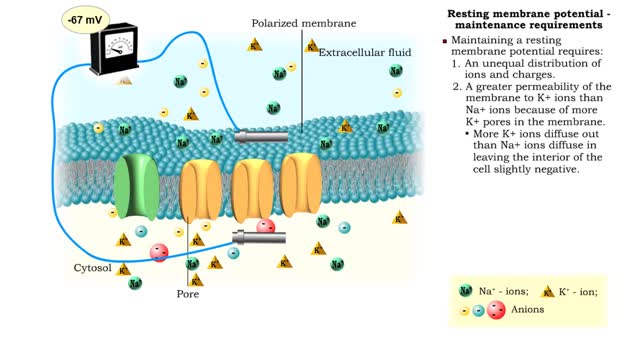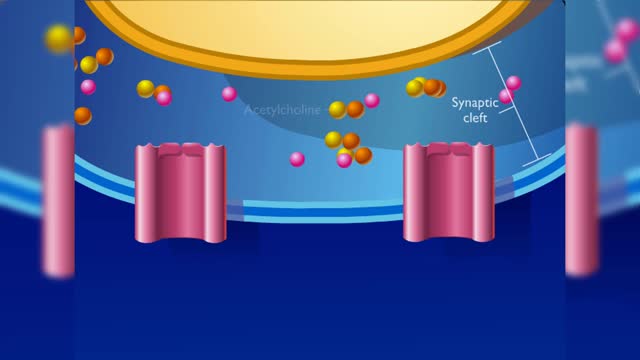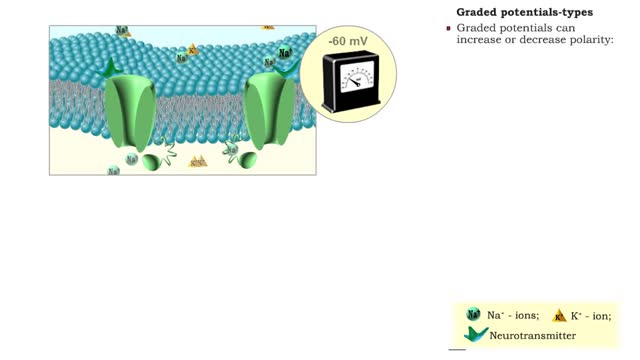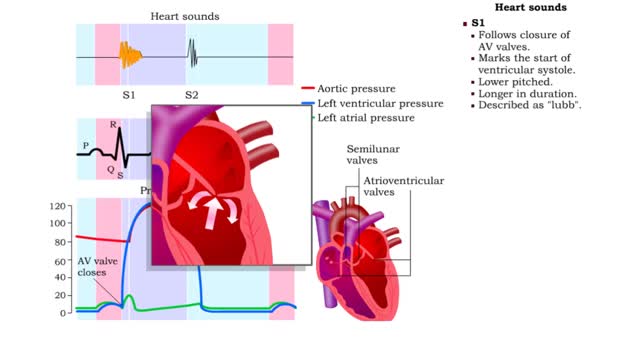Search Results
Results for: 'pacemaker potential'
Depolarization of the SA node, Action potentials of the myocardium & ANS effects
By: HWC, Views: 10968
• A typical contractile cell in the myocardium has a resting membrane potential. • The resting membrane potential of cells in the SA node is not fixed, and is known as the pacemaker potential. • The action potential of a healthy SA nodal cell has three parts: • Pacemaker potential: ...
Action potentials - electrical characteristics and generation
By: HWC, Views: 10919
• An action potential is the nervous impulse or signal for long distance communication. Each action potential is generated at the cell's trigger zone. • Action potentials are considered an all-or-nothing phenomena because they are either generated or not. • The generation of an action...
Conduction of action potentials
By: HWC, Views: 11257
• Action potentials must be rapidly conducted over long distances in order for the nervous system to communicate with other cells. • Propagation of an action potential uses processes similar to those that generate the potential at the trigger zone. • a When a graded potential reaches ...
Phases of an Action Potential - Resting Potential, Threshold, Rising, Falling, & Recovery Phases
By: HWC, Views: 10495
In this tutorial, we will review the phases of an action potential measured from a small area of a neuron's membrane. The action potential can be divided into five phases: the resting potential, threshold, the rising phase, the falling phase, and the recovery phase. When the neuron is at rest,...
Resting membrane potential - electrical polarity and maintenance requirements
By: HWC, Views: 10726
• A resting membrane potential exists when there is a buildup of: 1. positive ions outside the membrane. 2. negative ions inside the membrane. • Membranes with opposing charges are said to be polarized. • The difference in charge applies only to the small distance across the membran...
Graded potentials - electrical characteristics and types
By: HWC, Views: 11299
• A graded potential occurs when a gated channel is opened or closed, altering ion flow through the membrane. • Changes in ion and charge distributions cause voltage changes to the resting membrane potential. • The strength of the stimulus determines the number of gated channels affect...
By: HWC, Views: 11075
During a normal, healthy heartbeat, or what we call a cardiac cycle, the top two chambers of the heart, called the atria, contract simultaneously. Then, as they relax, the bottom two chambers, called the ventricles, contract. This explains what happens during a cardiac cycle, but what it doesn't ...
Advertisement



